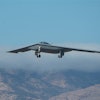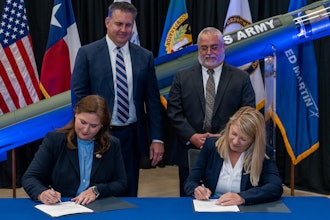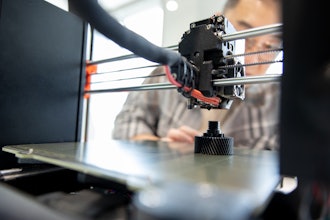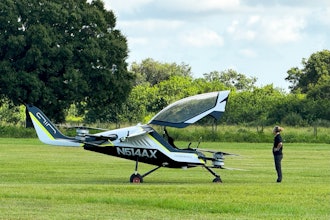A deadly helicopter crash off Newfoundland raises serious questions about whether the offshore oil regulator is as independent as it should be, says a lawyer for the families of the victims.
Jamie Martin's remarks Wednesday to an inquiry into offshore helicopter safety ran counter to the stance taken by the Canadian Association of Petroleum Producers.
The umbrella group for oil companies says there's no need for regulatory change.
The inquiry was called after Cougar Flight 491 crashed into the North Atlantic about 55 kilometres east of St. John's, N.L., on March 12, 2009, killing 17 of 18 people onboard.
Inquiry head Robert Wells is hearing final presentations this week as he prepares recommendations on how to make helicopter travel as safe as possible. He is expected to report by the end of October.
Martin drew on emotional testimony given Feb. 10 by family members of the offshore workers who perished.
They offered moving accounts of their loved ones' concerns about helicopter malfunctions, training, ill-fitting immersion suits and lack of safety information.
Their evidence underscored "the need for a regulatory board that is responsive, and one that is accountable for its decisions — many of which affect the livelihood of each and every worker who travels offshore," Martin said.
"Mr. Commissioner, the families have every confidence that you will conduct a thorough analysis and consider the need for reforms, and in particular, whether there needs to be a regulator independent of government and industry."
Critics say the federal-provincial board that regulates oil activity off Newfoundland is in a conflict of interest. They point out that the Canada-Newfoundland and Labrador Offshore Petroleum Board is tasked with developing offshore resources to the maximum extent while also protecting workers and the environment.
Whether industry-regulator relations are too cosy has been a subject of intense scrutiny since a BP well exploded in the Gulf of Mexico last April, unleashing a massive oil spill.
Norway, Australia and the United Kingdom have created separate safety agencies to oversee offshore oil projects.
CNLOPB chairman Max Ruelokke has repeatedly stressed that environmental protection is a key priority for the board, second only to worker and overall safety. He has also cited the ability of the board's chief safety officer to act independently.
A lawyer for the Canadian Association of Petroleum Producers told the inquiry there's no need to change a regulatory system that works.
"Everything we've heard in this inquiry indicates that improvements to helicopter passenger safety can be accommodated within the existing regulatory structures," said Lewis Manning.
"There is simply no reason and there is no foundation in the mandate or record of this inquiry to recommend a major structural change to the regulatory model."
Oil company executives have also told the inquiry since it began in October that safety is their top priority — despite evidence that it took nine years to introduce underwater breathing devices for offshore workers.
The small scuba-like compressed air cylinders offer a minute or two of oxygen in an emergency. They became standard equipment for workers flying offshore in May 2009.
Manning told the inquiry Wednesday that lessons have been learned and project management streamlined to avoid such delays in the future.
But NDP MP Jack Harris, a lawyer with standing at the probe, says the association should publicly release its report on the delay.
"We're being asked to believe — and the public is being asked to accept — that: 'We have learned lessons, but we're not going to tell you what they are. But you can be assured we've learned something.' Well, that's not good enough."
Harris said Wells must weigh whether safety oversight can be hived off within the regulatory board, or whether a separate agency is needed.
Harris, the NDP defence critic, has also pushed for major changes to search and rescue response times.
He points out that Wells already made a swift and early recommendation in mid-February that offshore workers deserve no less than a 15-to-20-minute daytime response standard, and a 45-minute "wheels up" standard in the evenings and overnight.
Cougar previously took up to one hour to respond.
Helicopter flights at night or in low visibility were restricted to emergencies as oil companies were ordered to fully equip a search-and-rescue helicopter on standby in St. John's whenever workers fly.
Harris says military search-and-rescue backup provided by National Defence is inadequate and poses a tricky issue for the inquiry.
Military aircraft respond to emergencies within 30 minutes between 8 a.m. and 4 p.m. on weekdays but can take up to two hours during evenings, weekends and holidays.
Harris says such a potential lag for backup in an emergency is not nearly adequate for the freezing North Atlantic.
At issue is the fact that it's outside of the inquiry mandate for Wells to comment on military response times.
"He can't tell the Canadian Forces to reduce their response time," Harris conceded. "It's not in his jurisdiction. But he can tell Cougar that they can only fly when the Canadian Forces are available (within 30 minutes) between 8 a.m. and 4 p.m. on weekdays."


















